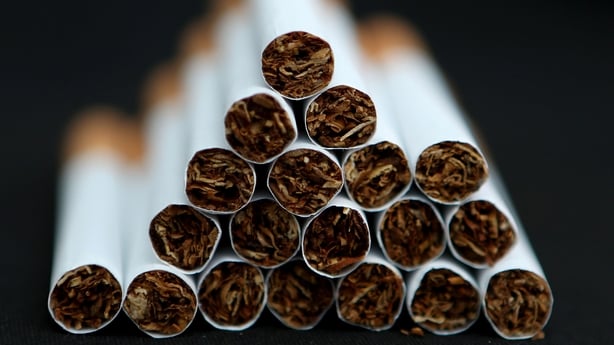Increasing excise duty on a pint of beer by one cent would yield €6.6m for the Exchequer, new data shows.
The report from the Tax Strategy Group sets out potential options for the Government ahead of the next Budget.
It shows that increasing excise duty on a bottle of wine by five cents would yield €3.2m for the Exchequer, while hiking the price of a pint of cider by the same amount would yield €4m.
The paper also sets out how much cutting excise duty on alcohol would cost the Exchequer.
In 2023, excise on alcohol generated €1.26 billion for the Exchequer.
Ireland has some of the highest rates of excise duty on alcohol products in the EU.
While there has been no general increase in alcohol excise for ten years, public health lobbyists have highlighted that the absence of regular rate increases can undermine the public health objective of high excise rates.
Alcohol Action Ireland (AAI), in their pre-budget submission highlights multiple reports from bodies such as the World Health Organization (WHO), International Monetary Fund, OECD and the Commission on Taxation and Welfare, which state that for such taxes to be effective from a public health perspective, they must keep pace with inflation.
In this context, the AAI has recommended that the Government increase excise duty by at least 15% to bring this back to their 2014 level.
It also wants alcohol excise duty to be automatically linked to the Consumer Price Index going forward.
Meanwhile, tobacco products generated a yield of just over €1 billion for the Exchequer last year.
However, today's report states that increasing excise on cigarettes in the Budget may not lead to increased yields.
It suggests that higher cigarette prices in Ireland could reduce demand due to greater incentives to purchase non-Irish duty paid tobacco products as well as to substitute the use of other products, such as e-cigarettes.
The latest Illegal Tobacco Products Research Survey from 2023 indicates that over one third of cigarette packs consumed in the State are illicit or non-Irish duty paid.

"In recent years, the notable increases in the volume of products being consumed outside the scope of Irish excise duty raises concerns that price increases may be creating greater incentive for black market activity," the report states.
It also states that these trends will be a key consideration in the context of any further tax increases, as there is a risk of a significant fall in Exchequer receipts over time.
Ireland has some of the highest rates of duty on tobacco products in the EU, with a consistent increase over the past decade.
Budget 2024 provided the highest hike in excise, at a rate of €0.75 on 20 pack cigarettes in the Most Popular Price Category (MPPC) with pro rata or higher increases applied to RYO.
Traditionally, Tobacco Products Tax (TPT) receipts have remained stable at over €1 billion a year with successive rate increases compensating for reductions in the volumes released for consumption.
Today's paper also gives an update on the Sugar Sweetened Drinks Tax (SSDT), which was introduced in the Finance Act 2017 and commenced in 2018.
The aim of the SSDT is to reduce rates of obesity in Ireland by reducing the consumption of sugar sweetened drinks.
It states that initial indicators show that while the SSDT has not resulted in the level of receipts originally anticipated for the Exchequer, it has been quite successful in spurring reformulation of existing products to fit into the lower tax band, or reduce sugar content to below the level that necessitates inclusion in the tax.
The Department of Health has commissioned an external evaluation of the SSDT with the objective of measuring the effectiveness of the tax in Ireland.
The review is due to be completed in the coming months. It is expected that any future changes to the tax, in terms of scope and rates structure, will be informed by the outcome of the review.
Last year, this tax generated €29.3m for the Exchequer, down on the €32m in 2022.
Finally, the report examines betting duty, which generates a modest amount of revenue for the Exchequer compared with the other excise taxes.
The betting sector has indicated previously that their business model is very sensitive to changes in betting duty, in particular the smaller bookmakers.
The Tax Strategy Group sets out a scenario where betty duty would increase by 0.5%, while simultaneously increasing the quantum of tax relief from €50,000 to €65,000 per firm.
It estimates that increasing the betting duty rate by 0.5% would raise €25 million in a full year, while increasing betting intermediary duty commission by 5% to 30% would raise €800,000 in a full year.
"These estimates are based on the betting market continuing as normal in 2024 and 2025 and take no account of behavioural changes, either amongst providers or consumers of betting services," the report states.
"It is understood the burden of such additional tax increases would mainly impact large bookmaking firms," it added.







